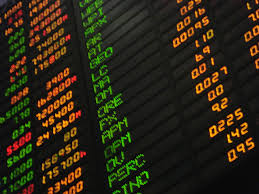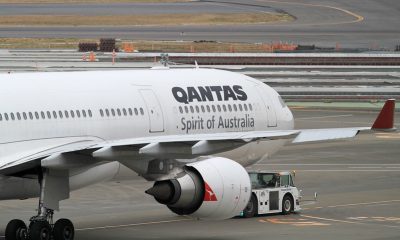Business and Economy
Asia stocks bounce back but Greece uncertainty still looms
TOKYO (AP) — Asian stock markets bounced back Tuesday, recouping some of the previous day’s sharp losses, but investors remained worried the crisis in Greece could spread to other financially weak countries.
Japan’s benchmark Nikkei 225 gained 0.4 percent to 20,189.02 after dropping to its lowest point for the year Monday. South Korea’s Kospi was up 0.2 percent to 2,065.34. Hong Kong’s Hang Seng rose 1.2 percent to 26,280.22. China’s Shanghai Composite was down 0.6 percent at 4,052.47 while Australia’s S&P/ASX 200 was little changed at 5,423.70.
In currency trading, the euro dropped to $1.1189 from $1.1216 in the previous global trading session. The dollar fell to 122.40 yen from 122.62 yen.
“Most traders are well prepped over the possible fallout of Greece. It’s guessing which card will fall next that’s the difficult bit,” said Nicholas Teo, analyst at CMC Markets in Singapore. “The Brazilian real was knocked back hard these past days as have the Turkish lira and most other emerging Asian currencies. These associations are made to Greece as they fall under the labeling of global emerging markets.”
A series of events over the weekend has left Greece perilously close to defaulting on its debts. Greek leaders pulled out of talks with creditors that include European nations and the International Monetary Fund and called a referendum that’s likely to determine if Greece stays in the euro common currency.
In the vote set for Sunday, the government is urging Greeks to vote against its creditors’ proposals, arguing that they are humiliating and that they would prolong the country’s financial woes.
Investors fled from stocks worldwide on Monday and retreated to the safety of government bonds.
U.S. stocks had their worst day of the year. The Standard & Poor’s 500 index dropped 43.85 points, or 2.1 percent, to 2,057.64. The Dow Jones industrial average lost 350.33 points, or 2 percent, to 17,596.35, and the Nasdaq composite fell 122.04 points, or 2.4 percent, to 4,958.47. The losses wiped out all the gains for the Dow and S&P 500 indexes this year.
In Europe, Germany’s DAX lost 3.6 percent while France’s CAC-40 lost 3.7 percent. Britain’s FTSE 100 fell 2 percent. Greece’s stock market was closed. Investors bought German and British government bonds, which are seen as safe havens, and sold bonds issued by Greece’s government, sending those yields sharply higher.
Investors were concerned that the crisis in Greece could spread to other euro countries that are struggling with high debt and austerity policies or to developing nations in Asia and South America.
Over the weekend, the European Central Bank refused to extend its emergency support for Greece’s banking system. That prompted the Greek government to close banks and announce limits on withdrawals. Pictures of long lines at bank machines in Athens appeared on television screens around the world.
“Whenever you see any kind of bank line, there is in the back of investors’ mind the thought: `What if it spreads? What if people panic?'” said Karyn Cavanaugh, senior market strategist at Voya Investment Management. “What’s going on in Europe, of course it’s going to roil markets in the short term,” But for U.S. investors, she said, “the long-term impact is not that big of a deal.”
If Greece defaults and switches to a new currency, it’s sure to shake global financial markets. But the world is unlikely to see anything like the full-blown crisis of 2008. A few years ago, banks across Europe were loaded down with loans to the Greek government, corporations and banks. Things have changed since then.
The European Central Bank is also ready to swing into action to prevent a panic. The ECB has already committed to buying 60 billion euros a month in corporate and government bonds to push down interest rates and help the European economy. It could buy even more, and flood financial markets with cash, to calm jittery European investors.
In energy markets, benchmark U.S. crude was down 14 cents at $58.19 a barrel in electronic trading on the New York Mercantile Exchange. The contract dropped $1.30 to close at $58.33 in Nymex floor trading on Monday. Brent crude, a benchmark for international oils, was down 10 cents at $62.50 a barrel in London.






















